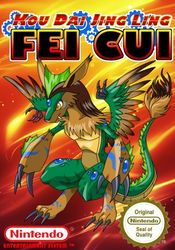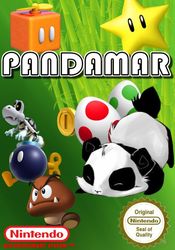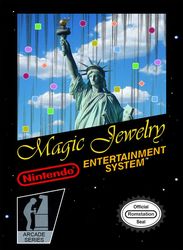

Kou Dai Jing Ling - Fei Cui est une version bootleg NES de Keitai Denjuu Telefang, un jeu Game Boy Color. Il a été fait par Waixing et est considéré comme étant d'une qualité médiocre. Le gameplay a un peu à voir avec le Telefang originale. Bien que l'intrigue générale est toujours la même, avec les mêmes objectifs et les boss, il y a certains éléments radicalements modifiés. Le starter est Oshe, par opposition à Crypto (dans la version Power) ou fungus (dans la version Speed). Les Denjuu à l'état sauvage sont tous complètements différents, et sont souvent évolués. Les magasins sont complètement différents, offrant de nombreux éléments à la fois, plutôt que de simplement quatre éléments, et sont souvent très coûteux. L'horloge est totalement inexistante, et le système de combat est très différent. Tous les Denjuu ont reçu des noms de Pokémon aléatoire (parfois mal orthographié). Comme tous les pirates Waixing, le texte est en chinois, plutôt que japonais. Les onze premiers pokemon de la troisième génération des jeux Pokémon sont présents. Comme le Telefang original, le joueur peut sélectionner jusqu'à trois Denjuu pour combattre à la fois, mais le système de combat est complètement différent. Bien que l'écran de sélection des Denjuu dit qu'ils arriveront dans les 6 tours (qui est la différence du Telefang originale), ils semblent toujours arriver instantanément. Contrairement aux Telefang originale, où il y a des 3-on-3 en combats, un seul Denjuu se disputeront à la fois. Chaque Denjuu a quatre attaques. Les attaques ont des PP, qui est une caractéristique comme dans Pokémon. Le PP (et HP) sont restaurés après la fin d'un combat. Dans le Telefang originale, chaque Denjuu avait un type qui affecte la façon dont il se bat contre d'autres types. Toutefois, dans ce NES bootleg, cette caractéristique semble être inexistante.
Note : 0/5
Year : 2002
Genre : RPG

Pandamar
2000 -

Magic Jewelry
1990 - 



